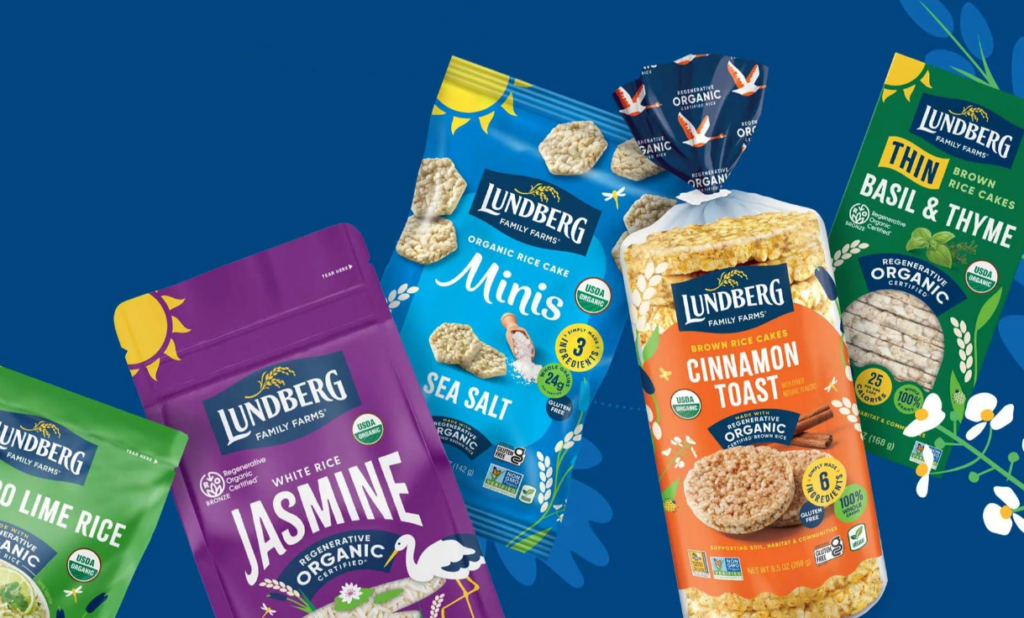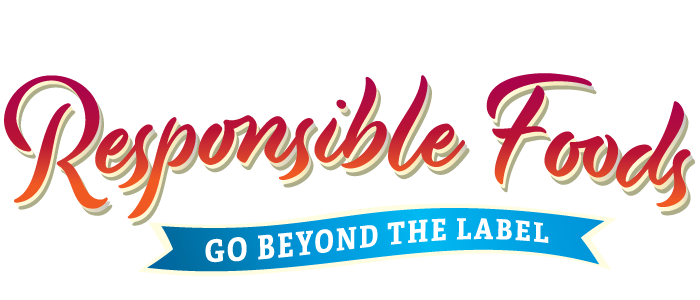Lundberg Family Farms: Pioneers of Regenerative Rice Farming

More and more farming operations, big and large, and thinking of ways to do agriculture better, to make their practices more cohesive with the environment, and to generate healthier, more-natural food while still preserving efficiency. Lundberg Family Farms is one company that has been doing this since the beginning.
The Beginnings of Lundberg Family Farms
The farming history of the Lundberg family began when Albert and Frances Lundberg left Nebraska in search of new opportunities after the Great Depression. The couple settled in Richvale, California, a small farming community north of Sacramento. They recognized the potential of the land for rice cultivation and embraced environmentally-friendly farming methods from the outset.
In those days, the Lundbergs’ neighbors were burning their rice stalks after the harvest. But Albert figured out a way to simply plow them back into the soil, utilizing them as fertilizer. So early on, he was already ahead of his time. This commitment to sustainability laid the foundation for Lundberg Family Farms to become the first American producers of organic rice products.
Regenerative and Organic Farming
Organic, regenerative farming is absolutely a core aspect of what the Lundbergs have set out to accomplish in their farming practices. Lundberg Family Farms prioritizes soil health, biodiversity, and the well-being of the community. Lundberg’s practices exemplify this philosophy based in responsibility:
Wildlife Habitat
Lundberg Family Farms’ rice fields serve as vital habitats for over 200 species of wildlife! This is particularly true during the winter months, when the Lundbergs flood their fields. The fields provide nourishment for migrating waterfowl, which eat weed seeds and little by little press the rice straw into the soil, helping it to decompose and become mulch for the next crop. Natural weed control! And natural mulching!
Soil Health
Maintaining healthy soil is a cornerstone of sustainable agriculture. Lundberg Family Farms uses cover crops, such as nitrogen-fixing legumes, purple vetch, and oats, to restore nutrients, prevent soil erosion, and sequester carbon. Using cover crops helps to increase organic matter per acre, which then increases the long-term fertility of the soil.
Egg Rescue
With all the wildlife that the rice fields attracts, some ducks are bound to make their nests among the rice stalks. What happens to all these precious ducklings to be? Well, the Lundbergs certainly don’t let them get damaged during the harvesting. They go out into the fields, find the nests, and take them to a safe location. The Lundbergs estimate that 30,000 duck eggs have been rescued in their farming history.
Herbicide-Free Farming
Although the waterfowl help by eating weed seeds, they don’t have to do all the work. Strategic water management plays a big role in controlling weeds. By regulating the water levels, the weeds can be drowned without harming the rice.
Water Management
Lundberg’s water management practices not only sustain rice cultivation but also support local ecosystems. By returning water to rivers and streams, they nourish endangered salmon populations, showcasing the interconnectedness of agriculture and wildlife conservation.
Regenerative Organic Certified®
Lundberg’s commitment to eco-friendly practices is further emphasized by their goal to make all their rice Regenerative Organic Certified by 2027. The company believes that organic standards help keep the industry accountable and are working with the Regenerative Organic Alliance to develop standards for California-grown rice.
Is the Future Rice?
Lundberg Family Farms is doing a great job of being leaders in their industry. They advocate for responsible farming methods and exemplify high standards in their own practices. They understand that change will only happen if we make it happen. For everyone who loves rice, Lundberg Family Farms is a company to check out.
